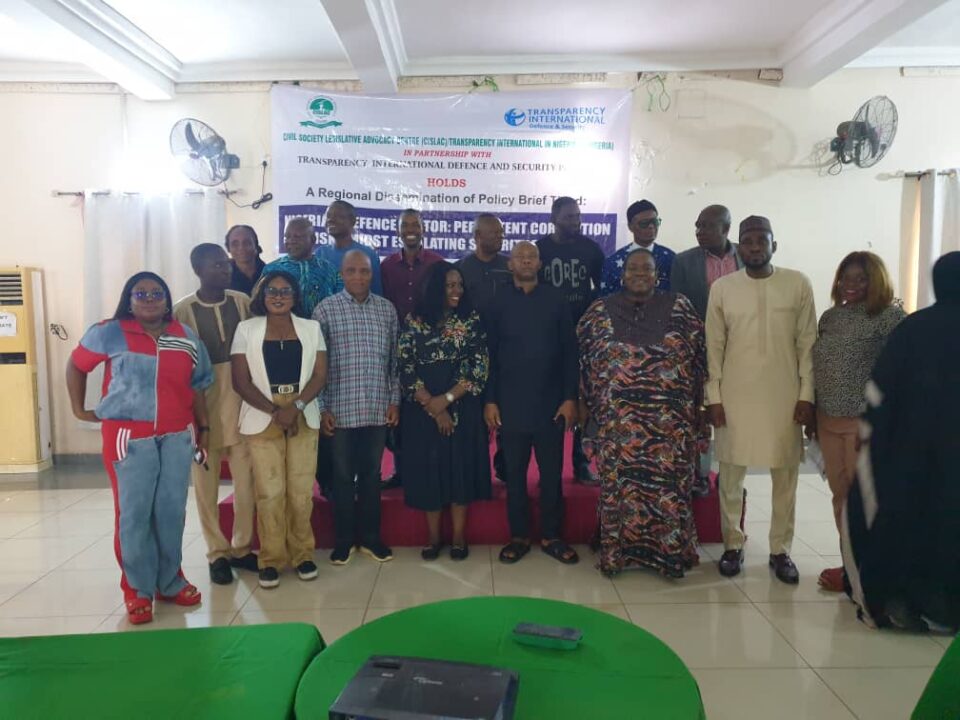The Civil Society Legislative Advocacy Centre (CISLAC) and Transparency International (TI) have said Nigeria’s rising insecurity is a result of endemic corruption within Nigeria’s defence ministry.
According to CISLAC, the defence sector’s rising expenditure and opaque procurement processes lack proper oversight and transparency, which has allowed corruption to thrive unchecked.
“The defence institutions must prioritise transparency and public access to information, especially on defence budgets and disaggregated expenditures,” Abubakar said.
CISLAC also stressed that stronger accountability measures and civilian oversight are vital to fostering long-term resilience and integrity in the military.
The policy brief further noted that the inability of the security forces to protect citizens from terrorist attacks has led to the rise of self-defence militias and increased militarisation of local communities — a development it says is both dangerous and unsustainable.
Nigeria’s poor ranking on the 2023 Transparency International Corruption Perception Index, where the country placed 145th out of 180 countries was also addressed by CISLAC as evidence of the systemic nature of the problem.
The group added that recurring reports of soldier desertions and corruption in the procurement of arms and safety equipment have exposed front-line troops to grave danger.
“From 2016 to 2022, Nigeria spent over $19.9 billion on security. In 2021 alone, the military budget rose sharply to $4.5 billion from $2.4 billion in 2020, but results on the battlefield remain minimal,” CISLAC stated.
Findings by the Centre for Democracy and Development (CDD), which reported that $15 billion was lost to fraudulent arms procurement deals over the past two decades was also cited by the organisation.
The briefing concluded with a call for urgent reforms aimed at improving transparency, accountability, and operational efficiency across all levels of Nigeria’s defence architecture.
READ FULL POLICY BRIEF BY CISLAC HERE

